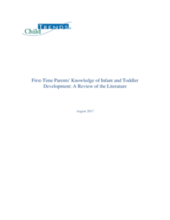Displaying 261 - 270 of 490
This secondary analysis, based off data collected in 1999 by the Survey on Child Abuse in Residential Care Institutions in Romania, investiged the prevalence of growth stunting of institutionalized Romanian children and compared the prevalence of stunting between four different institutional contexts.
This study observed the physical growth and cognitive development in institutionalized toddlers in India, finding profound developmental delays in the sample group.
This chapter serves as an introduction to the book Child Maltreatment in Residential Care and provides a brief overview of the research on child maltreatment within the context of institutional care.
This paper utilizes a harm-reduction framework to present best practices for improving residential care and reducing the negative effects residential care can have on children's development.
This chapter of Child Maltreatment in Residential Care describes Interaction Competencies with Children – for Caregivers (ICC-C), a preventative intervention approach to improve the quality of care and reduce the incidence of maltreatment within institutional care settings in Sub-Saharan Africa.
This chapter from Child Maltreatment in Residential Care presents the key findings from the Bucharest Early Intervention Project (2003), a longitudinal randomized control study which revealed the immense developmental impact of the severe deprivation experienced by children placed in institutional care shortly after birth.
This qualitative study explored the emotional experiences of 15 adolescents placed in foster care in South Africa.
Child Trends reviewed the literature on parenting knowledge among first-time parents with young children (2 years and younger). Specifically, they examined research on what parents know and want to know about parenting and child development, where they get their information, and what sources of information they trust.
This study investigated and compared electroencephalogram (EEG) functioning between a group of institutionalized adolescents and a never institutionalized group of adolescents during a social decision making task.
This paper offers recommendations for child welfare professionals, caregivers and systems to use the research on adolescent brain development to work effectively with youth in or emerging from foster care.



